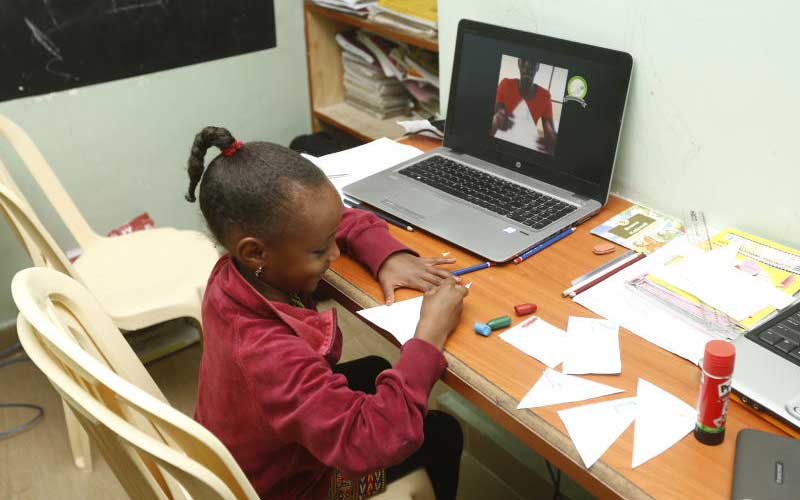×
The Standard e-Paper
Join Thousands Daily

Sakhu Galma, a pupil at Children in Freedom School, attends an online lesson from her home in Lanet, Nakuru county on April 20, 2020. [Kipsang Joseph, Standard]
The government needs Sh61 billion to roll out online lessons for 10 million children in public schools.







